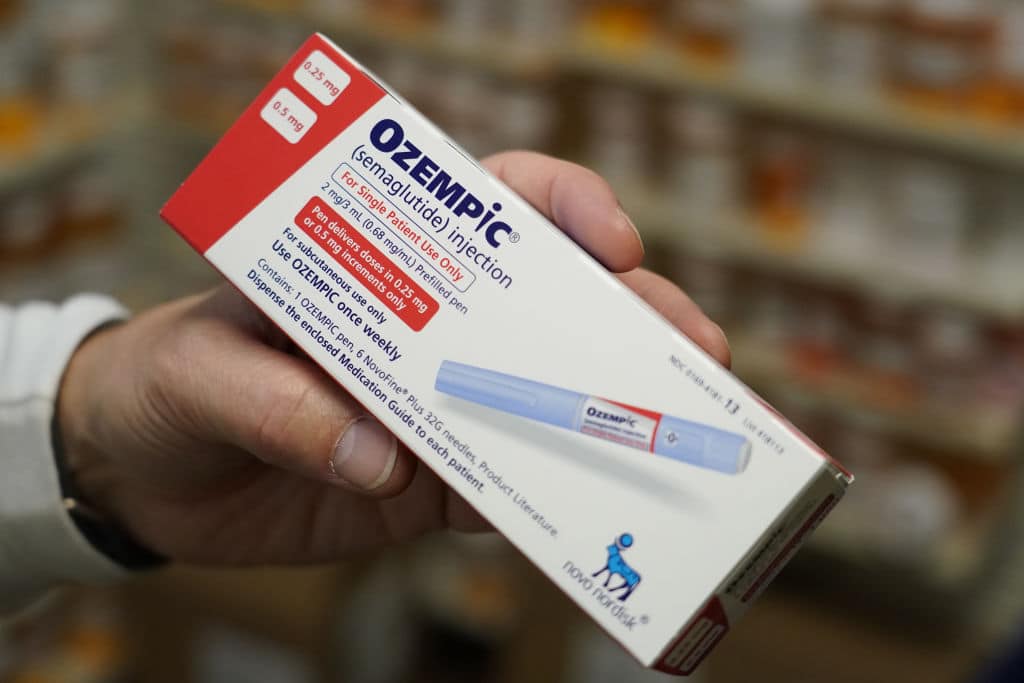TOPLINE
Novo Nordisk’s weight loss injection semaglutide — the ingredient inside its wildly popular drugs Ozempic and Wegovy — could slash the risk of heart attacks and strokes whether patients lose weight when taking it or not, according to new research, a finding that bolsters the public health case for the in-demand drug amid increasing concern over costs and persistent supply issues.
KEY FACTS
Patients taking semaglutide had a 20% lower risk of heart attack, stroke or death due to cardiovascular disease after three years of treatment, according to an analysis of data from the five-year Select trial presented at the European Congress on Obesity conference in Venice, Italy.
Select, which is funded by Novo, involves 17,604 overweight or obese adults over the age of 45 from 41 countries, all of whom have previously had a heart attack, stroke or peripheral artery disease but no diabetes, is the longest clinical trial of Wegovy.
While the cardiovascular benefits of Wegovy are now well recognized, including on the drug’s U.S. label, researchers found patients taking semaglutide received the drug’s cardiovascular benefits of the drug regardless of their starting weight or how much weight they lost when taking it.
University College London’s professor John Deanfield, who led the study, said the “findings have important clinical implications” and suggests semaglutide has another mechanism to lower cardiovascular risk other than reducing unhealthy body fat, adding that many more patients than are taking it now would likely benefit from the drug.
Loading...
Other research based on Select data, also presented at the conference, found patients taking semaglutide were able to maintain weight loss after four years of treatment, which researchers said held across different ages, sexes and races.
Patients taking the drug for four years lost and sustained an average of 10% of their bodyweight while remaining on the medicine, the researchers found, compared to just 1.5% in the placebo group.
Get Forbes Breaking News Text Alerts: We’re launching text message alerts so you’ll always know the biggest stories shaping the day’s headlines. Text “Alerts” to (201) 335-0739 or sign up here.
KEY BACKGROUND
Novo’s semaglutide, alongside Eli Lilly’s tirzepatide, the drug inside blockbusters Zepbound and Mounjaro, are at the forefront of a promising class of drugs called GLP-1 agonists causing a huge stir in public health and the pharmaceutical industry. The drugs mimic the action of a gut hormone that plays a role in regulating satiety and blood sugar. They were initially tapped to treat diabetes — such as Mounjaro and Ozempic — before being deployed to treat obesity and, more recently, cardiovascular disease. A myriad of other conditions could also benefit, according to growing reports and emerging research, including sleep apnea, addiction, anxiety, Parkinson’s, kidney disease and fatty liver disease. Obesity is an enduring public health issue in its own right and the weight loss industry is booming even without the health aspect, meaning demand for the drugs is often beyond supply. Both Novo and Lilly readily acknowledge they are unable to keep up and while a range of competitors from startups to pharma titans are rushing to get their own products to market, it is still going to be years until these products make it and there is no guarantee they will equal or trump the incumbents.
Loading...
